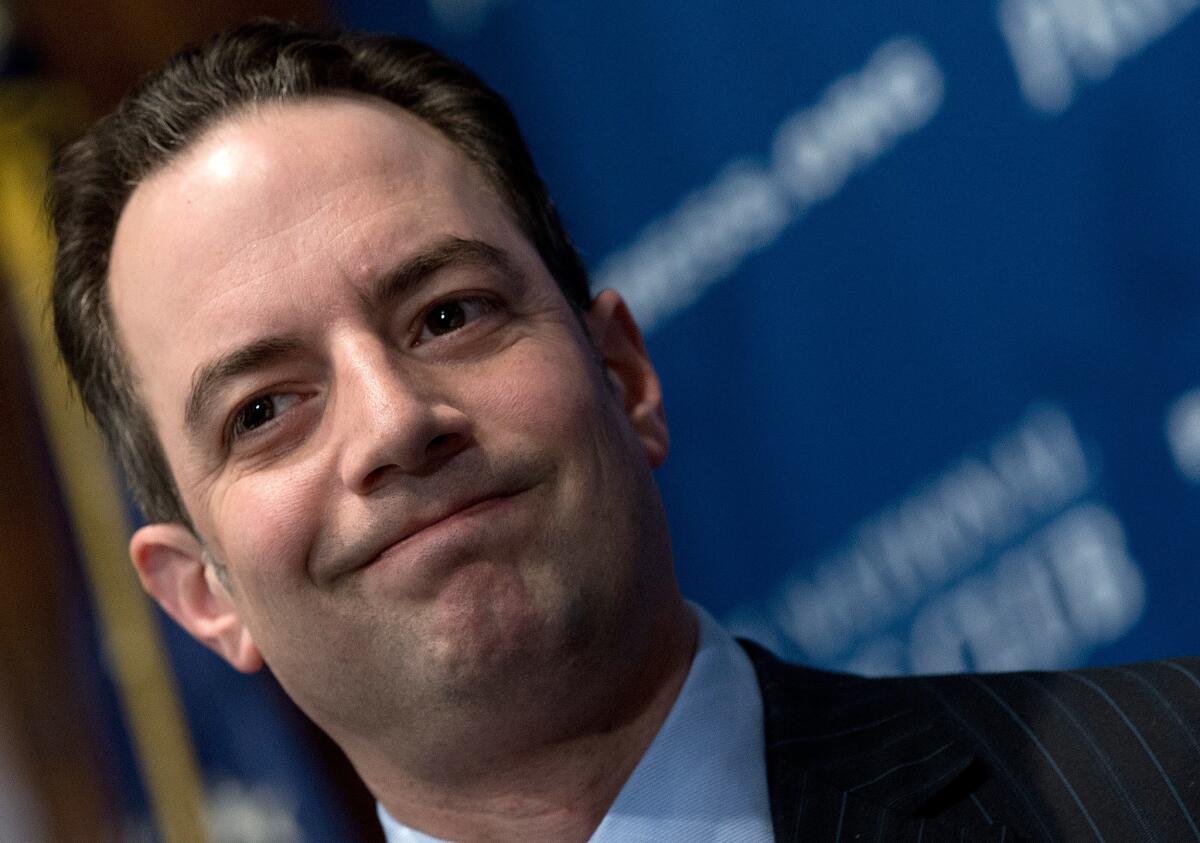Will young and minority voters listen to a new message from GOP?

- Share via
My colleague Alexandra LeTellier gave two thumbs down earlier today to a new, Republican National Committee-bankrolled study on how to improve the party’s appeal to, umm, everyone who isn’t an older white guy. She’s clearly in the RNC’s target, being a) female, and b) not yet ossified. But she’s not buying what the party leadership is selling.
Here’s the GOP’s problem in a nutshell: It sees a messaging problem, but its critics see a positioning problem.
When the economy is slow, people want their policymakers to do something to help the country. If you’re a free-market party preaching the long-term value of letting the private sector clean up after itself, it can be hard to seem dynamic and responsive. That’s especially true when your newfound disbelief in Keynesian economics means your policy toolbox holds little more than tax cuts and spending reductions.
Like the authors of the study released Monday, I don’t consider it inherently cruel or even indifferent about the GOP’s approach to the economy and safety-net programs. Republicans typically start with the assumption that the government isn’t very good at making people’s lives better. They want government to spend on programs that work, not just spend for the sake of spending.
But much of the public expects more than just skepticism about the efficacy of the federal bureaucracy. It’s easy to be a critic; it’s hard to figure out a better alternative. And when you look at the alternatives Republicans have put on the table, they too often boil down to exercises in burden-shifting. They talk about being the party of opportunity, but they don’t have a good track record at the federal level of extending that opportunity to Americans on every rung of the economic ladder.
The authors of the study put it this way:
“The perception that the GOP does not care about people is doing great harm to the Party and its candidates on the federal level, especially in presidential years. It is a major deficiency that must be addressed.
“We need to do a better job connecting people to our policies. Our ideas can sound distant and removed from people’s lives. Instead of connecting with voters’ concerns, we too often sound like bookkeepers.”
They’re right about the shortcomings in messaging. It’s hard not to sound like a bookkeeper when you’re constantly complaining about the deficit at a time when unemployment is high and interest rates are low -- two facts about the economy that everyone knows, and that belie the assertion that government spending is the problem to end all problems.
Economist Peter Morici, a professor at the University of Maryland’s Robert H. Smith School of Business, said the national GOP made the situation worse by taking the wrong side in some high-profile debates.
“Republicans face daunting challenges selling conservative prescriptions to voters, because the GOP often doesn’t support genuine fairness in the tax system and policies that would promote more robust competition,” Morici wrote in an email newsletter Monday. “[President] Obama wants to eliminate special tax breaks for big oil and on investment income, which permit many corporate executives and financiers like Warren Buffet to pay taxes at lower rates than his secretary, but Republicans consistently oppose those reforms.
“Dodd-Frank imposes too many burdens on regional and community banks, which historically finance small businesses and much of the jobs creation. Republicans want to repeal this law, but won’t get behind restructuring remedies that would protect against past financial abuses and enable small banks to flourish -- for example, separating financial houses that trade securities from banks, which make loans and take government guaranteed deposits, and limiting the size of the largest banks.
“Republicans can’t explain how their positions benefit either fairness or growth, and hence, can’t complain when liberals paint them as the party of the rich and big business.”
One hope for the party, as Mitt Romney argued Friday at the Conservative Political Action Conference, is to shine a spotlight on the work that Republican governors are doing to improve their states’ economies while balancing their books. Nevermind the fact that the gains in some places (e.g., Texas) have come at the expense of other states, an approach that doesn’t work at the federal level. The bottom line for the GOP governors is that they’ve done more than just cut, chop and reject; they’ve solved real problems.
On the plus side, it’s only March 2013. There’s plenty of time before the next big round of elections for Republicans to come up with a better way to demonstrate that their economics and social policies will work better than the Democrats’ policies have. Granted, they’ll have to explain how today’s ideas differ from President George W. Bush’s, and why they won’t lead to another pulverizing recession. And they’ll probably have to show how today’s Republican governors aren’t cut from the same cloth as Bush (who was governor of Texas before he ran for president) and Romney (who was governor of Massachusetts).
I don’t think either of those distinctions are hard to draw. But if House Republicans continue to draw record low approval ratings, it may be hard to get the public to listen.
ALSO:
The Catholic Church and Argentina
Sens. Ted Cruz and Dianne Feinstein face off on gun control
Follow Jon Healey on Twitter @jcahealey
More to Read
A cure for the common opinion
Get thought-provoking perspectives with our weekly newsletter.
You may occasionally receive promotional content from the Los Angeles Times.







